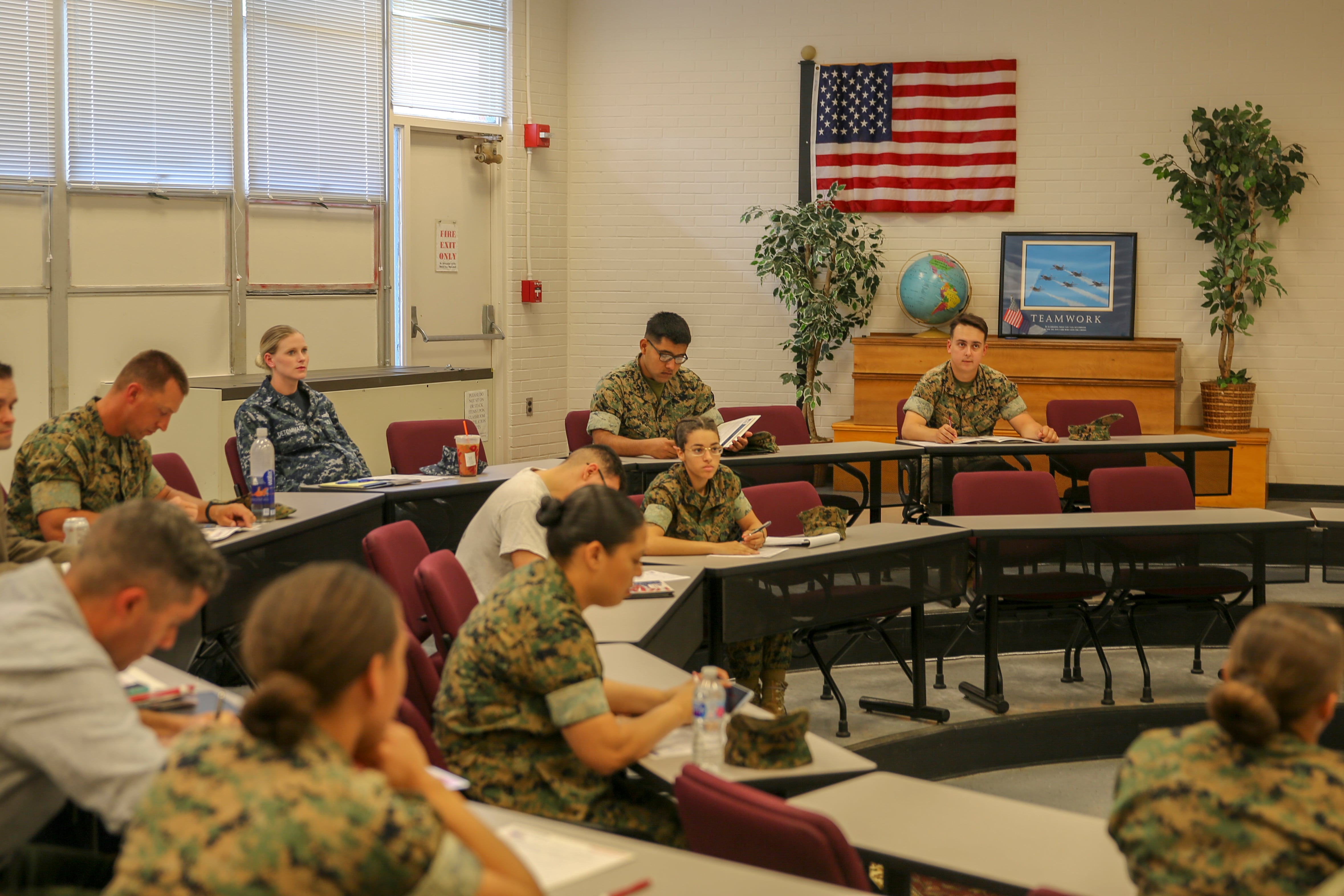The Corps will no longer conduct an annual training class asking Marines to quit smoking or dipping.
In fact, several annual training requirements have been consolidated or eliminated to “enable commanders to focus on events that generate warfighting readiness,” according to an administrative message published Thursday, which announced the changes.
“Fleet Marine Force (FMF) commanders consistently ask for more time to train to core warfighting tasks (Mission Essential Tasks),” Marine spokesman Capt. Sam Stephenson told Marine Corps Times in a Tuesday email. “This has been a consistent theme from the FMF, formally expressed in Defense Readiness Reporting System reports, and consistently discussed at TECOM subordinate command and Headquarters Marine Corps forums.”
RELATED

The new MARADMIN will require units to conduct chemical, biological, radiological and nuclear, or CBRN, training every fiscal year, more frequently than every other year ― as it was in the past.
It also consolidates the once individual training requirements on hazing/bullying, sexual harassment and equal opportunity into one prohibited activities and conduct training event.
Tobacco cessation training, along with training on social media conduct, combating trafficking, and violence prevention awareness all have been eliminated from the annual training requirement, according to the MARADMIN.
To make the decision on which training events to cut and which to consolidate the Marine Corps split annual training into core and non-core requirements.
“Core requirements in this order directly support warfighting tasks and improve readiness and lethality,” Stephenson said.
Non-core requirements are training events that reinforce standards and go over prohibited activity but do not necessarily relate to a Marine’s job, Stephenson said.
The Marine Corps is unable to provide an exact number on how many training hours will be saved under the new MARADMIN, but noted the non-core training was reduced by six from the 15 events it was in the past.
